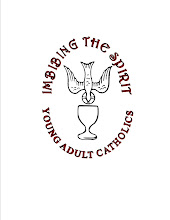Hi All,
The July meeting will add a new twist to our standard meetings. Instead of inviting a guest speaker or having one of our experts talk, we are headed to
St. Ignatios of Antioch Catholic Church in Augusta, GA.
The
Melkite church is part of the Byzantine rite of the Catholic Church. They are descendants of the early Christians from Antioch (Syria). The name "
Melkite" or "King's Men" comes from the Aramaic word "
melek" meaning "King". But why was this group called the "King's Men" in the first place?
The term "
Melkite"
originally applied to those who chose to follow the Byzantine Emperor
Marcian against those who denied the human nature of Christ. In 451 AD, the Fourth Ecumenical Council, the Council of
Chalcedon, declared that Christ was both human and divine against
Eutyches, the
archimandrite, or superior, of a monastery outside of Constantinople during the fifth century.
Eutyches was spreading what became known as the
Monophysite heresy, although he was not the
originator of this heresy (he is associated with the heresy because of his great influence in and around Constantinople).
The
Monophysite heresy contended that Christ did not have a human nature or was not truly human which directly contradicts the Council of
Chalcedon.
Monophysites claimed that Christ's divinity and humanity were so united, that his human nature was dissolved into his
divinity. Emperor
Marcian followed the teaching of the Catholic Church, against
Eutyches, as did many of his subjects who became known as the "King's Men" or "
Melkites."
I will let the liturgy speak for itself and forgo any descriptions of the liturgy until our group participates in the
Divine Liturgy at St. Igantios on June 13. I look forward to seeing all of you there!
Please see our facebook page for carpooling details and to RSVP.Christ's Peace,
Zach











